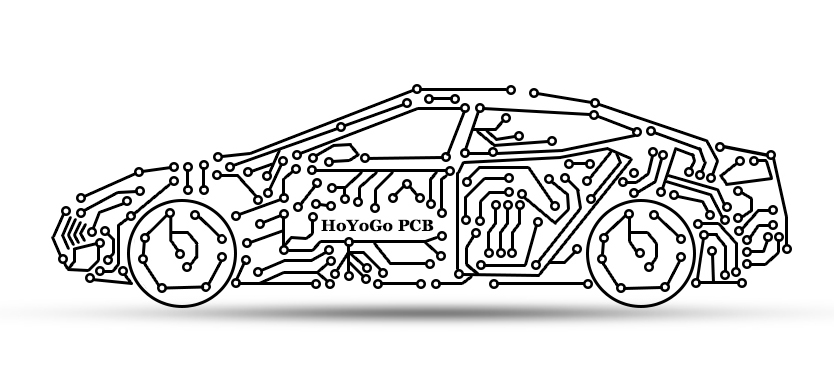Application of Automotive PCB in Smart Car Refrigerator
In Automobiles, smart refrigerators have become a convenient in-vehicle appliance, especially useful on long trips to keep food and beverages fresh. A smart car refrigerator not only requires powerful cooling capabilities, but also relies on advanced electronic technologies to achieve more efficient and intelligent control system. As one of the smart refrigerator’s core components, the automotive PCB plays a vital role.

1. Support for Temperature Control System
The car refrigerator’s temperature regulation depends on temperature sensors and control chips. The automotive PCB provides stable mounting and reliable electrical connections through precise circuit layout and wiring, allowing temperature data to be accurately collected and transmitted to the control unit. For example, the start-stop control of a thermoelectric cooling module or compressor is controlled by a temperature-control chip. The PCB’s role is to supply power and signal channel and, with thoughtful layout, to reduce interference and loss, ensuring that control commands are executed accurately. This electronic backbone allows the refrigerator to maintain a stable temperature in varying environments.
2. Power Management Integration
Because a smart car refrigerator typically draws power directly from the vehicle’s battery, power management is critical. Power-management modules are mounted on the automotive PCB to handle voltage conversion, over-current protection, and power regulation. By optimizing copper thickness, routing, and heat-dissipation structures, the PCB provides these power-management chips with a low-impedance and stable operating environment. This in turn helps the overall power system suppress fluctuations and improve efficiency, allowing the refrigerator to run steadily on long drives while minimizing stress on the car battery.
3. Intelligence and Connectivity Support
Car refrigerators are increasingly integrating Bluetooth, Wi-Fi, and other wireless modules, allowing users to remotely monitor and control them via smartphones or in-car systems. These wireless modules and micro-controller units (MCUs), among other key components, must all be mounted on the PCB. The PCB not only provides stable electrical connections, but also through multilayer routing and electromagnetic-compatibility (EMC) design, ensures reliable channels for high-frequency signal transmission, reducing interference and data loss risks. The user-facing functions, such as “remotely adjusting the temperature” and “checking operating status in real time” are actually enabled by the relevant chips, while the PCB delivers the indispensable underlying circuitry and structural support.
4. Foundation for Display and Operation
Typical car refrigerators include displays, touch panels, or buttons, all of which require dedicated driver circuits to process images and control signals. Driver chips and related components are likewise mounted and interconnected on the automotive PCB. Through well-planned routing and layer structures, the PCB offers stable power and data pathways between these chips and the display module, ensuring that temperature, operating mode, and other information are transmitted and shown accurately.
5. Integration with the Cooling System
Whether it is traditional compressor cooling or thermoelectric cooling, both require power devices and control units to drive them. The automotive PCB plays a key role by optimizing copper thickness, routing layout, and thermal design to provide high-power components with low-impedance current paths and efficient heat dissipation. In this way, it supports stable operation of the cooling system under heavy loads and helps reduce performance fluctuations caused by circuit heating or electromagnetic interference.
6. Challenges and Future Trends in PCB Design
The automotive environment is complex, with challenges such as vibration, high temperatures, and humidity. Therefore, the automotive PCB used in smart car refrigerators must employ high-Tg materials, reinforced structures, and optimized thermal designs to enhance overall heat resistance, vibration resistance, and heat dissipation. As intelligent features continue to evolve, future car-refrigerator PCBs will move toward higher integration, reserving more communication and sensor interfaces and improving electromagnetic compatibility and system stability through optimized routing and material selection.
HoYoGo is a professional and reliable automotive PCB manufacturer, offering one-stop services ranging from upstream electronic component sourcing, PCB fabrication and processing, SMT assembly, and PCBA testing to final product assembly. All of our products strictly follow IPC-A-600-H and IPC-6012 acceptance standards, with rigorous inspection at every step to give customers complete peace of mind.
评论
发表评论